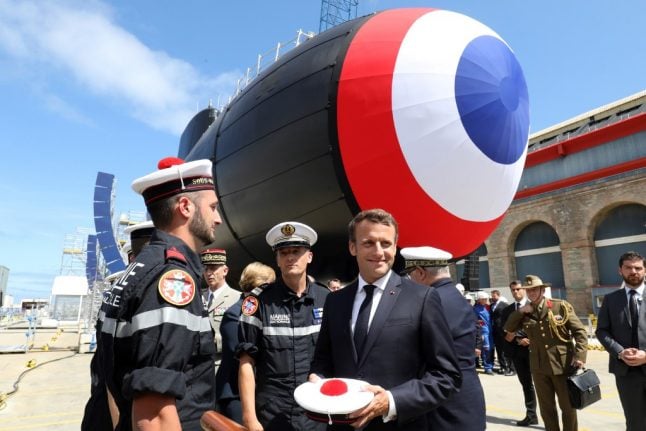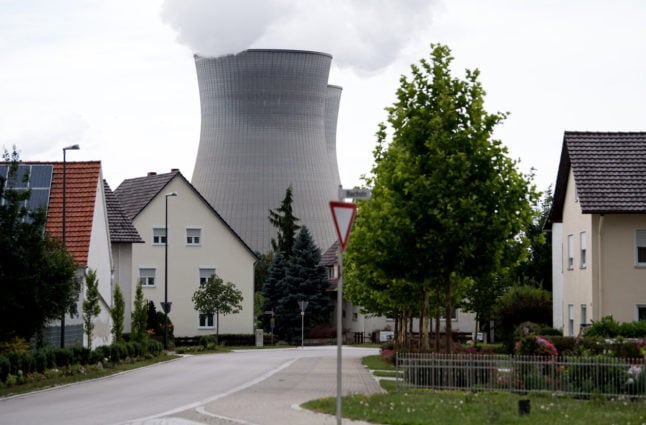“In the absence of a legal framework, they could rapidly face a new race for conventional weapons, even nuclear weapons, on their own soil,” Macron told military officers in a speech laying out France's post-Brexit nuclear strategy.
France is now the only nuclear-armed power in the European Union at a time when long-standing accords on limiting the growth of nuclear arsenals appear increasingly at risk.
The US and Russia have abandoned the Intermediate Range Nuclear Forces (INF) treaty, each blaming the other for breaching its limits, and Washington is threatening to quit the New START arms reduction treaty when it expires next year.
Add to that China's bid for global sway, there is a strong need for Europe to ensure it does not find itself in the middle of a Cold War-style standoff “which could jeopardise the peace obtained after so many tragedies on our continent,” Macron said.
He warned of “the possibility of a pure and unrestrained military and nuclear competition, the likes of which we haven't seen since the end of the 1960s.”

“The vital interests of France now have a European dimension,” Macron said.
European nations should also insist on being signatories of any new deal to limit the development of new intermediate-range weapons,” he added.
“Let us be clear: if negotiations and a more comprehensive treaty are possible… Europeans must be stakeholders and signatories, because it's our territory” that is most at risk.
No sharing
France has already reduced the number of its warheads to under 300, Macron said, giving it “the legitimacy to demand concrete moves from other nuclear powers toward global disarmament that is gradual, credible and can be verified.”
But he stopped short of offering to share France's nuclear deterrence capabilities, a pillar of its security strategy since implemented by Charles de Gaulle in the 1960s.
Germany in particular remains strongly opposed to atomic weapons, although a leader in Chancellor Angela Merkel's party, Johann Wadephul, said this week that Paris should consider putting its arsenal under the auspices of the EU or NATO.
Macron invited European partners to engage in a “strategic dialogue” on the deterrent role of France's nuclear capacity as the country embarks on a costly modernisation of its arsenal.
“Our independence in terms of decision-making is fully compatible with an unshakeable solidarity with our European partners,” Macron said.
Macron also warned of the need for “a greater capacity for autonomous action by Europeans,” who must step up their military spending.
“Why are they not ready to make defence a budget priority and make the necessary sacrifices, even as the risks are growing?” Macron asked.
'Restore trust with Russia'
His speech came as a diplomatic freeze between the EU and Russia since Moscow's annexation of Crimea from Ukraine has rekindled fears of fresh conflict along Europe's eastern flank.
France has broken with some EU nations by recently reaching out to restore dialogue with President Vladimir Putin, who controls the world's largest nuclear arsenal.
“There can be no defence and security project for European citizens without a political vision that seeks to progressively restore trust with Russia,” Macron said.
“We cannot accept the current situation, where the chasm deepens and talks diminish even as the security issues that need to be addressed with Moscow are multiplying.”
Macron did not specify whether Britain, Europe's other nuclear power, should be part of the deeper EU cooperation now that is has quit the bloc.
But he noted that “since 1995, France and the United Kingdom have stated clearly there is no situation in which a threat to one's vital interests would not also be a threat to the other's.”
“Brexit doesn't change this at all.”



 Please whitelist us to continue reading.
Please whitelist us to continue reading.
Member comments